John Wikswo
-
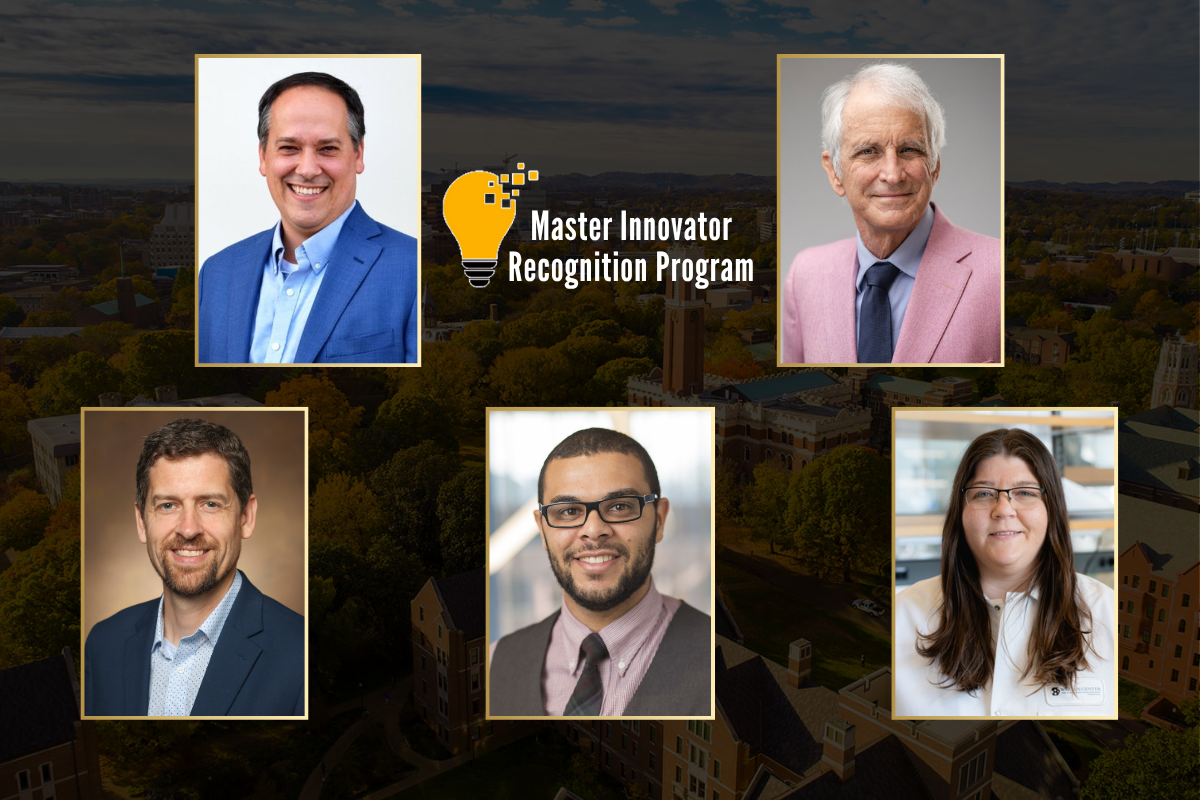
Vanderbilt honors 2025 Master Innovators who drive breakthrough research and commercial impact
Five exceptional Vanderbilt faculty members have been named 2025 Master Innovators for their extraordinary contributions to translating research into commercial applications that have significant societal impact. The 2025 honorees represent diverse fields from infectious disease therapeutics to neuroscience drug discovery and biomedical engineering. Read MoreNov 10, 2025
-
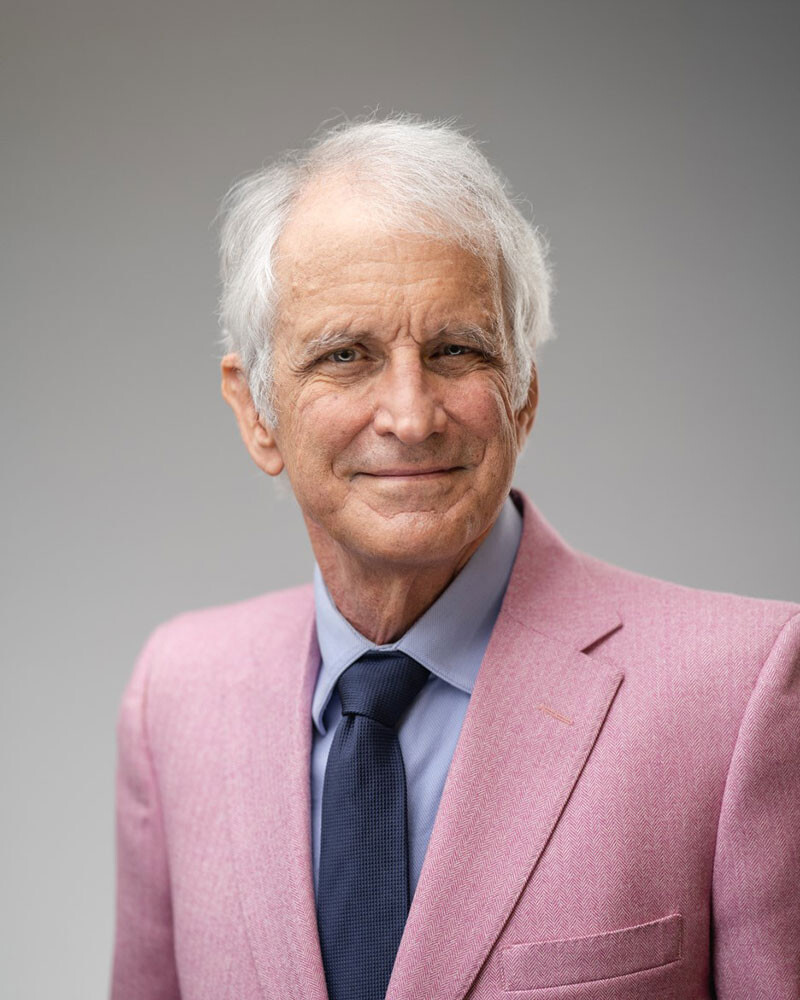
John Wikswo: Transforming small-scale science into planet-sized impact
When an “unsolvable” problem needs solving, put John Wikswo on the team. As director of the Vanderbilt Institute for Integrative Biosystems Research and Education and University Distinguished Professor of Biomedical Engineering, Molecular Physiology and Biophysics, and Physics, Wikswo is tackling questions crucial to the biotech and pharmaceutical industries, now with support from Vanderbilt's Innovation Catalyst Fund. Read MoreSep 26, 2025
-
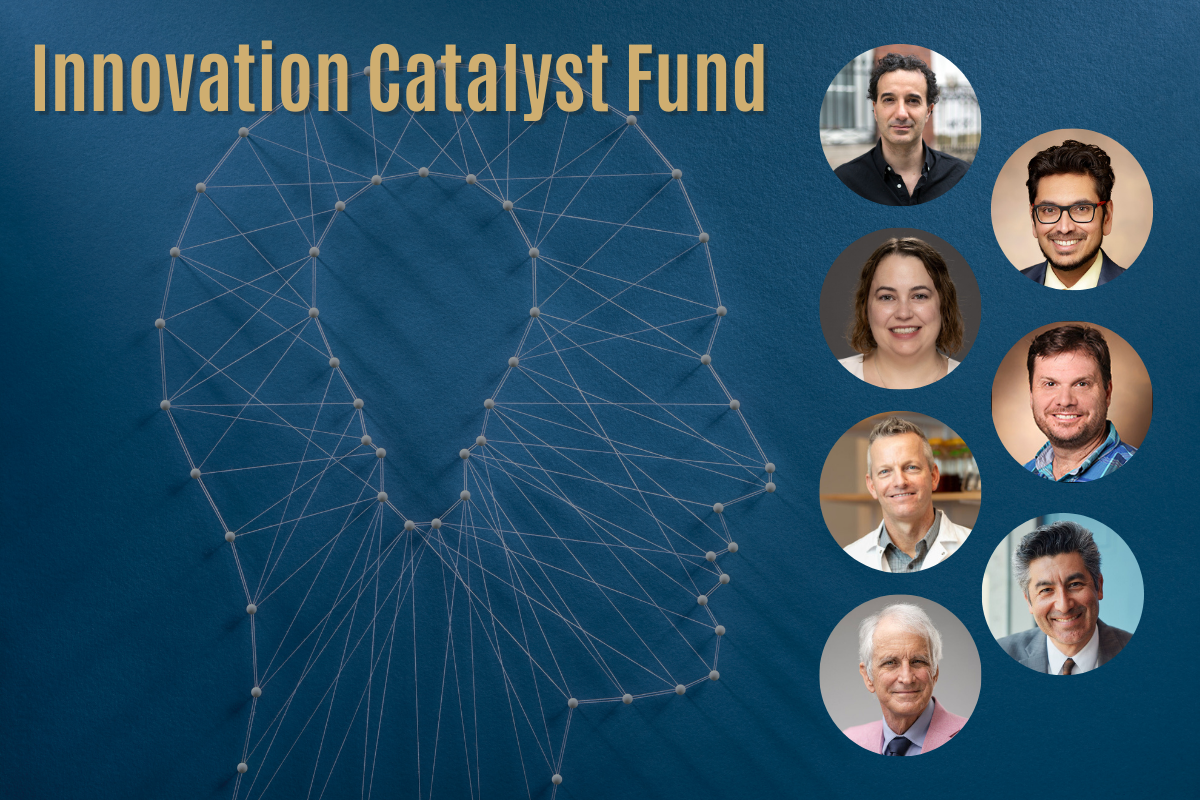
Seven Vanderbilt faculty research projects get innovation catalyst funding
Vanderbilt’s Innovation Catalyst Fund has awarded seven new faculty-led projects, advancing translational research and innovation in health care, engineering and AI-driven solutions. Read MoreFeb 17, 2025
-

Wikswo, VIIBRE team on track to build third-generation ‘self-driving lab’ with $1M from NSF
John Wikswo, founder and director of the Vanderbilt Institute for Integrative Biosystems Research and Education and Gordon A. Cain University Professor, is the principal investigator of a $1 million award from the National Science Foundation. The object is to build a pathbreaking “robot scientist”—a fully automated microfluidic system for parallel, independent, long-duration, machine-guided experiments. The... Read MoreMar 5, 2022
-

Wikswo, VIIBRE team on track to build third-generation ‘self-driving lab’ with $1M from NSF
John Wikswo, founder and director of the Vanderbilt Institute for Integrative Biosystems Research and Education and Gordon A. Cain University Professor, is the principal investigator of a $1 million award from the National Science Foundation. The object is to build a pathbreaking “robot scientist”—a fully automated microfluidic system for parallel, independent, long-duration, machine-guided experiments. The... Read MoreMar 5, 2022
-

Vanderbilt researchers develop publicly available COVID-19 animal susceptibility prediction tool; suggests increased risk to horses
All-remote collaboration results in free animal susceptibility tool to help prioritize research and closer examination of at-risk species. Read MoreOct 6, 2020
-
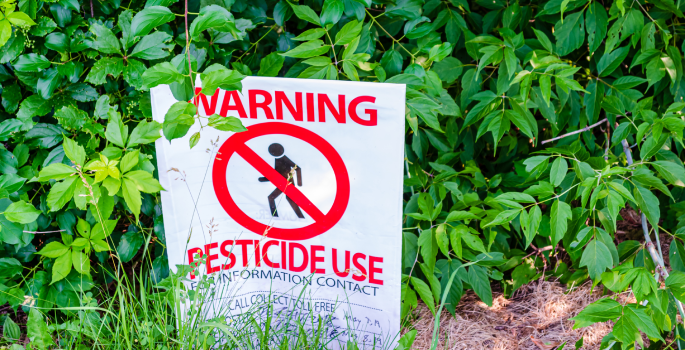
EPA-funded study aims to create novel platform for research into long-term neurotoxin exposure
A new Vanderbilt study funded by a grant from the Environmental Protection Agency seeks to construct a new platform and reliable approach for future studies into organophosphate compounds, such as pesticides, insecticides and similar nerve agents. Read MoreOct 16, 2019
-
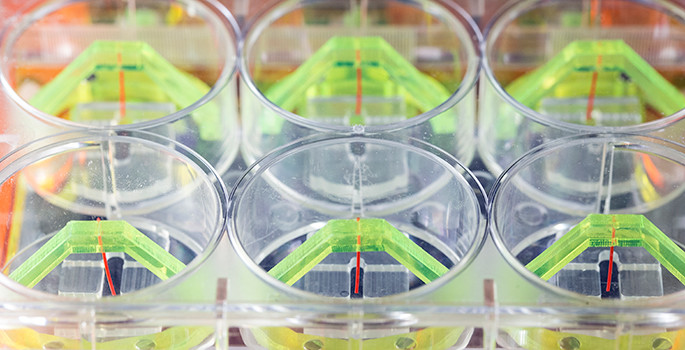
Organ-on-a-chip mimics heart’s biomechanical properties
Scientists at Vanderbilt University have created a three-dimensional organ-on-a-chip that can mimic the heart’s amazing biomechanical properties in order to study cardiac disease, develop heart drugs. Read MoreFeb 22, 2017
-

Blood-brain barrier on a chip sheds new light on “silent killer”
A new microfluidic device containing human cells that faithfully mimics the behavior of the blood-brain barrier is providing new insights into brain inflammation, the silent killer. Read MoreDec 6, 2016
-

Weird Science: Kit Parker’s breakthrough work on artificial hearts and brain injuries
Expect the unexpected when you walk into Kit Parker’s biophysics lab at Harvard. From cuttlefish skin camouflage to cotton candy machines used for wound dressings, his science is anything but ordinary. In fact, the young scientists inside are just as likely to be playing with crayons to visualize solutions… Read MoreDec 5, 2016
-

Weird Science: Kit Parker’s Breakthrough Work on Artificial Hearts and Brain Injuries
Expect the unexpected when you walk into Kit Parker’s biophysics lab at Harvard. From cuttlefish skin camouflage to cotton candy machines used for wound dressings, his science is anything but ordinary. Read MoreNov 20, 2016
-

VUCast: Easing allergies; Are your cleaning products safe?
In the latest VUCast: See which simple food can ease your allergies; learn about Vanderbilt's role in testing man-made chemicals; and what new invention can help reduce drought? Watch now! Read MoreJun 8, 2015
-

Vanderbilt and Pittsburgh to lead new center to identify toxic chemicals
EPA is establishing a new center at Vanderbilt University and the University of Pittsburgh to develop an alternative approach for toxicity testing to help evaluate the safety of the 80,000-plus chemicals in general commerce. Read MoreMar 25, 2015
-

Vanderbilt’s neurovascular chip project moves into new phase
Vanderbilt researchers will play a key role in the second phase of the federal "tissue chip for drug screening" program. Read MoreNov 18, 2014
-
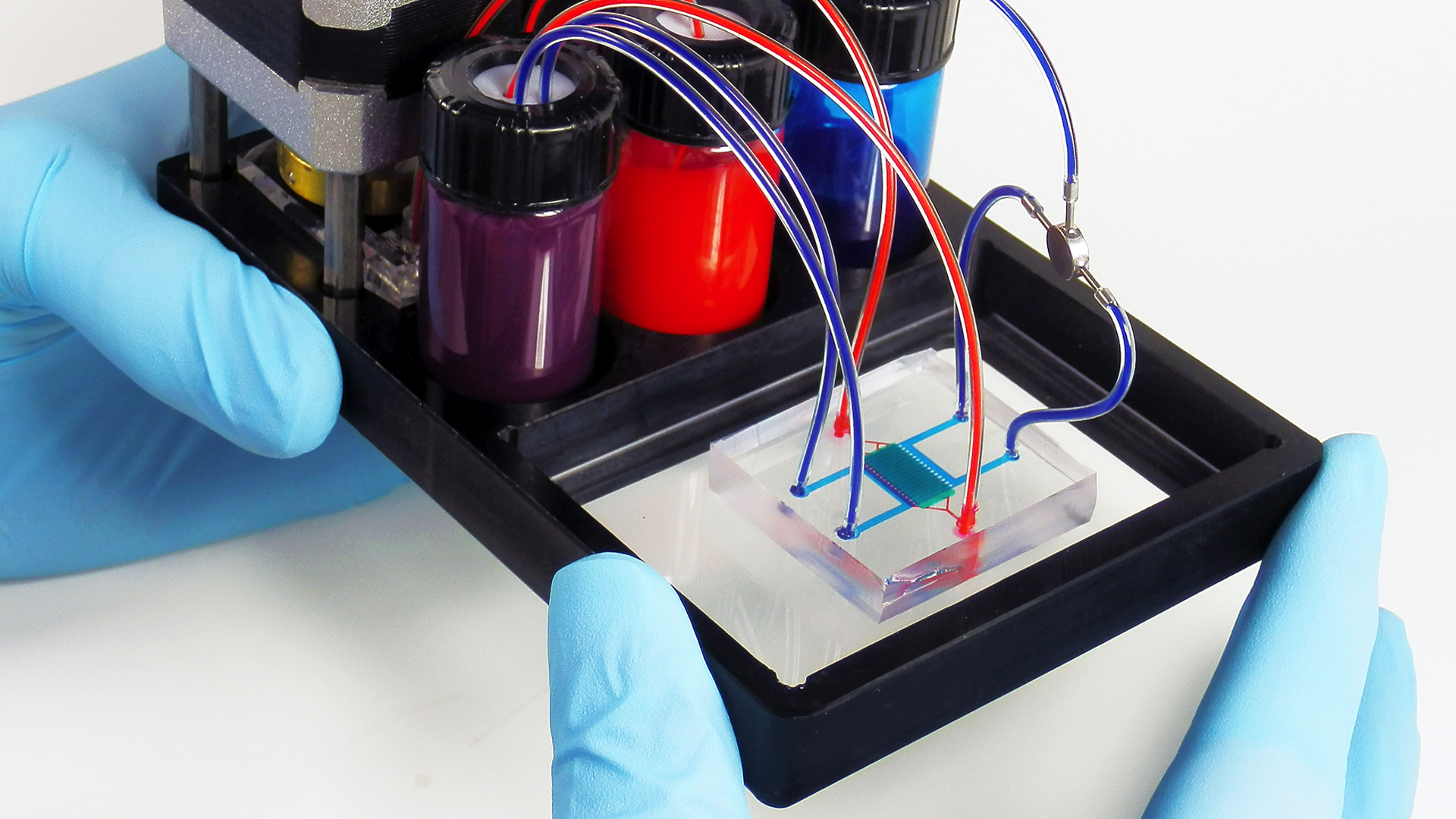
VUCast Extra: Vanderbilt advances ‘organ-on-a-chip’ research
A team of Vanderbilt researchers is working on a radical new way to test drugs and toxins. It all starts with an "organ on a chip." Read MoreJul 22, 2014
-
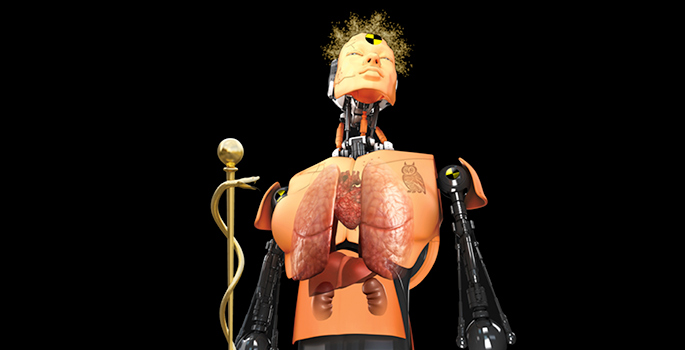
Significant progress toward creating “benchtop human” reported
Vanderbilt physicist John Wikswo reported significant progress toward creating “homo minutus” – a human-on-a-chip that can be used to test drugs and toxins – on Mar. 26 at the Society of Toxicology meeting in Phoenix. Read MoreMar 27, 2014
-
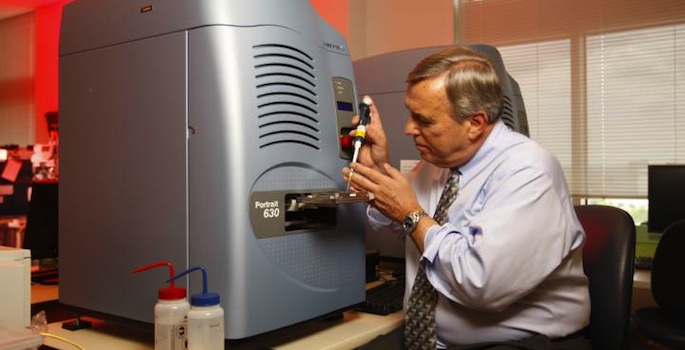
Vanderbilt awarded $16.5 million agreement to determine how toxic agents affect human cells
Vanderbilt University has been awarded a Cooperative Agreement with the Defense Advanced Research Projects Agency and the Army Research Office that is worth up to $16.5 million over five years. Read MoreMar 3, 2014
-

John Wikswo at TEDx Nashville: The Homunculi and I
John Wikswo, Gordon A. Cain University Professor of biomedical engineering and A. B. Learned Professor of Living Physics, presented "Homunculi and I: Lessons from building organs on chips" at TedX Nashville April 6, 2013. Read MoreMay 6, 2013
-
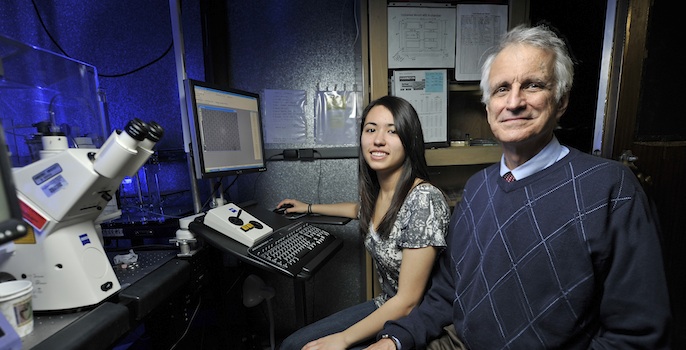
Hothouse for Scientists: Undergraduates work alongside seasoned researchers
The Systems Biology and Bioengineering Undergraduate Research Experience Searle Undergraduate Research Initiative is one of only a handful of multiyear, year-round undergraduate research programs in the nation. Read MoreJul 9, 2012
-

Robot biologist solves complex problem from scratch
A team of scientists has taken a major step toward developing robot biologists. They have shown that their system, the Automated Biology Explorer, can solve a complicated biology problem from scratch. Read MoreOct 13, 2011